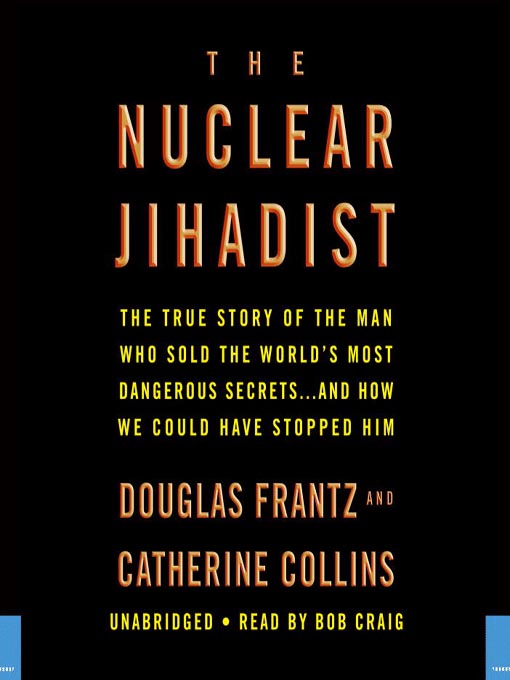
The Nuclear Jihadist
The True Story of the Man Who Sold the World's Most Dangerous Secrets...And How We Could Have Stopped Him
کتاب های مرتبط
- اطلاعات
- نقد و بررسی
- دیدگاه کاربران
نقد و بررسی

The authors unfold the story of the Islamic acquisition of supplies and materials for nuclear weapons by profiling Abdul Qadeer Khan. The Pakistani nationalist steadily evolved into a maverick entrepreneur with dual goals--to get the bomb for Pakistan and make a few bucks on the side by cutting separate deals with other nations. Bob Craig's slightly raspy voice has a calming quality, which, considering the volatile topic of this work, is welcome. Listeners learn about factors that contributed to Khan's success as a rogue businessman, specifically, a combination of "weak export controls and lax enforcement." Craig's narration brings the reader to a stark conclusion: When a lot of politics, a bit of religion, and some technological know-how combine with a prodigious ego--the result is dangerous. M.B. (c) AudioFile 2008, Portland, Maine

September 10, 2007
In tackling the story of Pakistani nuclear scientist A.Q. Khan, Frantz and Collins (Death on the Black Sea
) are entering a crowded field. As Adrian Levy and Catherine Scott-Clark did in Deception
(reviewed July 30), this husband-and-wife team divides attention between Khan's influence over Pakistan's nuclear program and how the American government ignored evidence of his progress because Pakistan served as a convenient ally. While much of this story is familiar, Frantz and Collins do provide more detail on Khan's background and draw on several different U.S. sources. (They reveal, for example, that the State Department discussed assassinating Khan as far back as 1978.) They also give the Pakistani government more benefit of the doubt than most other commentators: an internal corruption investigation ordered by Pervez Musharraf shortly after he became Pakistan's president is interpreted as suggesting that Khan's dealing with nations like Libya and Iran might not have been sanctioned by his government. Deception
has more about Pakistan's internal politics and an edge in readability and “zing,” but this is an equally serviceable overview.

























دیدگاه کاربران